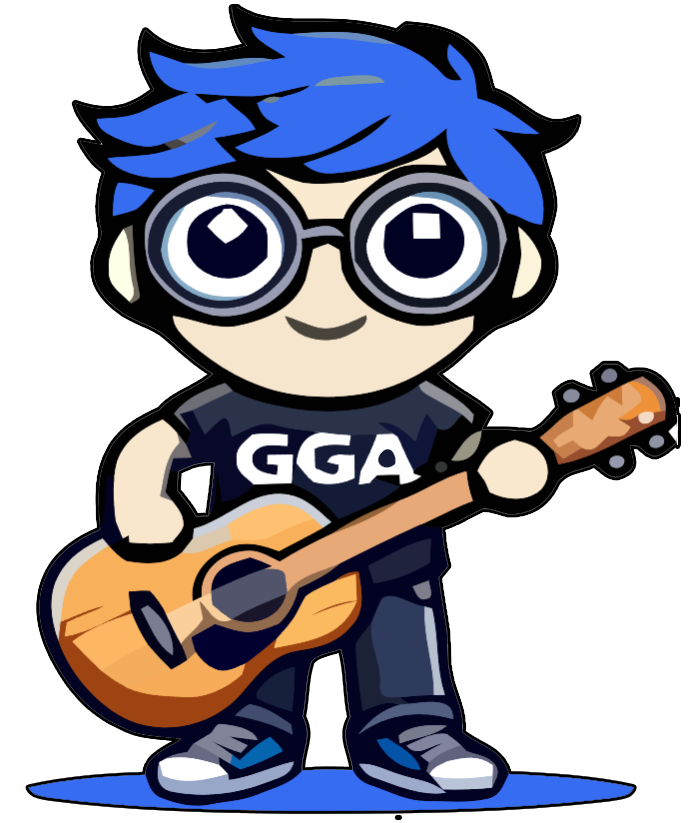Please login to bookmark
Practicing the guitar daily is one of the best ways to improve your skills, whether you’re a beginner or an advanced player. The amount of time you should dedicate to practice varies based on several factors, including skill level, goals, and available time. Some guitarists progress rapidly with just 30 minutes a day, while others dedicate several hours to mastering intricate techniques.
How Long Should You Practice Guitar Every Day?
In this guide, we’ll explore how much time you should practice based on different experience levels, the importance of structured practice, and how to maintain consistency without feeling overwhelmed.
Why Daily Guitar Practice Matters
Consistent practice is crucial for improvement. Unlike sporadic, long sessions, regular practice helps build muscle memory, develop finger strength, and reinforce musical understanding. Here’s why practicing every day makes a difference:
- Skill Retention – Learning a new technique or song requires repetition. Practicing frequently prevents forgetting what you’ve learned.
- Muscle Memory – Finger movements become automatic with repeated training, making transitions between chords and scales smoother.
- Steady Progress – Short, focused practice sessions are often more effective than long, infrequent ones.
- Improved Finger Strength & Dexterity – Daily exercises strengthen the fingers and improve overall control, reducing strain while playing.
- Better Timing & Rhythm – Consistent exposure to strumming patterns, metronomes, and backing tracks enhances your ability to keep time.
While daily practice is important, the amount of time you spend playing should be based on your experience level and personal goals.
Factors That Determine Your Ideal Practice Time
Not all guitarists need to practice for hours each day. The right practice duration depends on several factors:
1. Skill Level
Beginners, intermediate players, and advanced guitarists require different amounts of practice. Someone just starting might need only 15-30 minutes, while a professional musician could spend 5 hours perfecting techniques.
2. Goals
Are you playing casually for fun, or do you want to become a professional musician? Someone aiming to perform on stage or record music will need to invest more time in practice than a hobbyist.
3. Available Time
A busy work schedule or school commitments can make long practice sessions unrealistic. Instead of stressing over hours, it’s better to focus on consistent, quality practice within the time you have.
4. Quality Over Quantity
Practicing effectively is more valuable than simply playing for long periods. A structured 30-minute session with clear objectives can be more productive than aimlessly playing for two hours.
Recommended Practice Duration Based on Skill Level
The time you should spend practicing varies depending on your level of experience. Here’s a breakdown of suggested daily practice times:
Beginners (15-30 Minutes Per Day)
For those just starting, it’s important to focus on building basic skills without overwhelming yourself. A short, structured session can help build confidence and prevent frustration.
- Warm-up exercises (5 minutes) – Simple finger stretching and basic picking exercises.
- Chord transitions (10 minutes) – Practicing switching between open chords smoothly.
- Basic strumming & rhythm practice (10 minutes) – Developing consistency in strumming patterns.
- Learning simple songs (5 minutes) – Applying skills to easy songs for motivation.
Intermediate Players (30-60 Minutes Per Day)
At this stage, players should work on improving technique, speed, and musicality.
- Warm-up & scales (10 minutes) – Pentatonic scales, alternate picking drills.
- Technique drills (15 minutes) – Hammer-ons, pull-offs, barre chords, speed exercises.
- Learning new songs & solos (20 minutes) – Expanding repertoire with more challenging pieces.
- Ear training & improvisation (15 minutes) – Playing along with backing tracks, learning by ear.
Advanced Players (1-3 Hours Per Day)
For serious guitarists, longer sessions allow for deeper skill development and refinement.
- Warm-up & dexterity exercises (15-20 minutes)
- Complex scales & modes (20-30 minutes) – Mastering modal theory and improvisation.
- Challenging solos & compositions (40-60 minutes) – Learning intricate solos and writing original music.
- Technique enhancement (30 minutes) – Sweep picking, tapping, hybrid picking.
Professional Guitarists (3-5+ Hours Per Day)
Those pursuing a career in music often dedicate several hours daily to practice, focusing on everything from technique to stage performance.
- Mastery of styles – Jazz, blues, classical, metal, and fusion techniques.
- Recording & performance preparation – Refining tone, dynamics, and precision.
- Sight-reading & theory study – Understanding complex music structures.
Regardless of your skill level, it’s important to practice effectively rather than just playing for extended periods without clear objectives.
Structuring Your Guitar Practice Routine
A well-planned practice routine can significantly improve efficiency. Here’s an example of how to organize your time:
- Warm-up (5-10 minutes) – Finger exercises, stretching, and scales.
- Technique drills (15-20 minutes) – Chord transitions, speed exercises, picking accuracy.
- Song practice (20-30 minutes) – Learning and refining songs, working on challenging parts.
- Creativity & improvisation (10-15 minutes) – Soloing over backing tracks, creating riffs.
- Cool down (5 minutes) – Gentle playing, finger relaxation exercises.
Following a structured routine ensures steady improvement while keeping practice engaging.
Common Mistakes to Avoid in Guitar Practice
Many guitarists fall into habits that slow down progress. Here are a few common mistakes to watch out for:
- Practicing Without a Plan – Playing random songs without focusing on weaknesses leads to slow improvement.
- Skipping Warm-ups – Jumping straight into playing without warming up can cause stiffness or injury.
- Neglecting Proper Technique – Poor posture, incorrect finger placement, and inefficient picking can lead to long-term bad habits.
- Ignoring Difficult Areas – Repeating easy parts of a song instead of working on the challenging sections hinders growth.
- Over-practicing – Playing for too long without breaks can cause fatigue and burnout.
Recognizing and correcting these mistakes will make practice sessions more productive.
Tips to Stay Motivated & Consistent
Maintaining a regular practice schedule can sometimes be challenging. Here are some ways to stay engaged:
- Set Realistic Goals – Break down long-term aspirations into manageable daily or weekly goals.
- Use a Metronome – Practicing with a metronome improves timing and rhythm.
- Record Your Progress – Listening to recordings of your playing helps track improvement over time.
- Join a Guitar Community – Engaging with other guitarists online or in person can provide motivation and inspiration.
- Experiment with Different Styles – Trying out new genres keeps practice interesting and broadens your musical understanding.
By making practice enjoyable and setting achievable milestones, it becomes easier to stay consistent.
Conclusion
The amount of time you should practice guitar each day depends on your skill level, goals, and available time. A beginner may see steady progress with just 20 minutes a day, while an aspiring professional might need to dedicate several hours. More than the length of practice, consistent and structured sessions play the biggest role in improving technique, speed, and musicality.
Rather than focusing solely on how long you practice, prioritizing effective exercises and maintaining a steady routine will lead to the best results. Whether you’re just starting or looking to take your playing to the next level, setting realistic goals and practicing with purpose will help you progress steadily.



![How Long Should You Practice Guitar Every Day? [Ultimate Guide] 1 Recommended Practice Duration Based on Skill Level](https://guitargeekacademy.com/wp-content/uploads/2025/03/2-1.jpg)
![How Long Should You Practice Guitar Every Day? [Ultimate Guide] 2 Structuring Your Guitar Practice Routine](https://guitargeekacademy.com/wp-content/uploads/2025/03/3-1.jpg)
![How Long Should You Practice Guitar Every Day? [Ultimate Guide] 3 4 1](https://guitargeekacademy.com/wp-content/uploads/2025/03/4-1.jpg)



